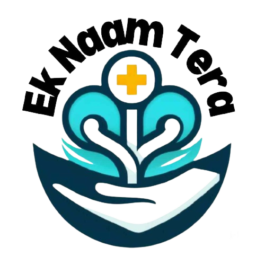Overview of Ausbildung
The term “Ausbildung” in Germany refers to a vocational training program that combines theoretical education with practical work experience. It’s a well-established system designed to provide students with the skills and knowledge necessary for a specific profession. Ausbildung is a cornerstone of Germany’s education system and plays a critical role in its economy by producing highly skilled workers.
Types of Ausbildung Programs
Duale Ausbildung (Dual Training Program):
Structure: This is the most common form of Ausbildung, where trainees split their time between attending vocational school (Berufsschule) and working at a company.
Duration: Typically lasts between two and three and a half years.
Fields: Includes a wide range of professions, from technical and industrial jobs to healthcare and administrative roles.
Schulische Ausbildung (School-based Training):
Structure: Conducted entirely in vocational schools with practical training in simulated work environments or through internships.
Fields: Often found in healthcare, education, and social services.
How Ausbildung Works
Application Process:
Finding a Position: Students search for training positions (Ausbildungsplätze) through various platforms such as company websites, job portals, and vocational fairs.
Application: Involves submitting a CV, cover letter, and school certificates. Some professions may require entrance exams or interviews.
Training Contract:
Agreement: A contract between the trainee and the training company outlining the training plan, duration, salary, and other conditions.
Probation Period: Typically lasts a few months, during which both parties can assess the fit.
Theoretical Education:
Vocational School (Berufsschule): Trainees attend classes on subjects relevant to their profession, usually one or two days a week.
Curriculum: Includes both general education (e.g., German, mathematics) and specialized vocational subjects.
Practical Training:
On-the-Job Training: Trainees work at the company, gaining hands-on experience under the supervision of skilled professionals.
Tasks: Range from basic to complex, increasing in responsibility as the trainee progresses.
Assessment and Certification:
Examinations: Trainees undergo mid-term (Zwischenprüfung) and final exams (Abschlussprüfung) conducted by industry-specific chambers (e.g., IHK, HWK).
Certification: Upon passing the final exams, trainees receive a certificate recognizing their professional qualification.
Benefits and Worth of Ausbildung
Career Prospects:
Job Security: High demand for skilled workers in various industries ensures good job prospects upon completion.
Professional Growth: Opportunity to advance in one’s career through additional qualifications and continuous professional development.
Earning Potential:
Paid Training: Trainees receive a monthly salary (Ausbildungsvergütung) that increases each year of the program.
Competitive Salaries: Graduates often earn competitive wages compared to university graduates, especially in technical and skilled trades.
Skill Development:
Practical Skills: Intensive hands-on training equips trainees with practical skills and work experience.
Theoretical Knowledge: Comprehensive vocational education ensures a solid understanding of theoretical concepts relevant to the profession.
Industry Recognition:
Certification: Recognized qualifications that are valued by employers both in Germany and internationally.
Networking: Connections made during training can lead to job offers and professional networks that benefit one’s career.
Conclusion
Ausbildung in Germany is an effective pathway to a rewarding career, offering a balanced combination of theoretical education and practical experience. It provides a solid foundation for professional growth and development, making it a valuable investment for both individuals and the economy.
